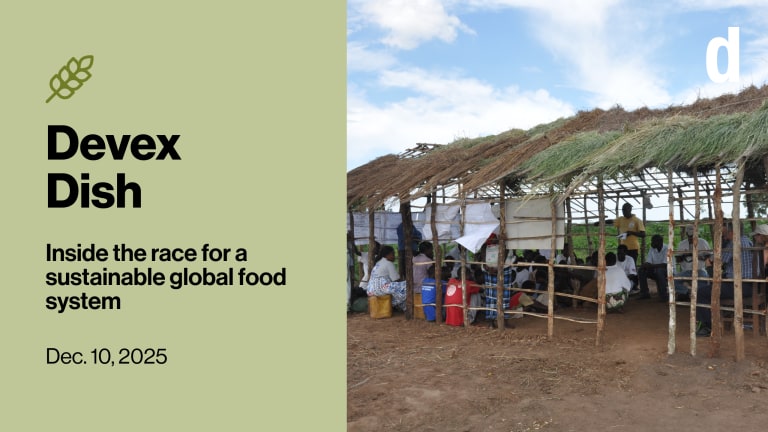The southern slopes of Mount Marsabit just outside the Marsabit National Park in Kenya’s north were enveloped in a lush green in the days toward the end of May this year. At the foot of the mountain, the Karare Scheme and Nasikakwe hamlets were overgrown with bushes obscuring the park’s boundary fence. The rains that had pounded much of the country in April had done good for the county.
Oromoya Silango’s home was equally shrouded in shrubbery and trees almost completely hiding her two huts, one made of mud and the other, the kitchen, made of sticks and covered in tarpaulin. On a small cultivated patch outside her houses, her two elder sons helped weed a crop of kale which she sells to neighbors and clients in the neighboring Karare shopping center. Her husband was away somewhere in the thicket nearby taking care of their two cattle that survived the last drought.
Silango, 50, is one of close to 20,000 people in Marsabit County getting regular payments from the Hunger Safety Net Programme, or HSNP, the country’s unconditional cash transfer program. The initiative is intended to reach the lowest-income and most vulnerable households in eight counties. Marsabit, the biggest county in Kenya, is home to pastoralists, largely arid and prone to ravages of drought. It has recorded the highest poverty rates in the country.


